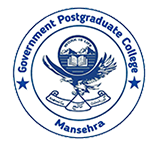The importance of peace-building efforts in reducing hostilities among parties in any conflict is rising in a world where security and identity are under increased assault. There is a growing corpus of research on peace-building, but there are diverse opinions on the activities of religious actors in peace-building in the post-conflict African States. Therefore, the main aim of the study is to examine the contribution of religious actors and faith-based organizations in peace-building. The study is based on the social capital theory that identified networks, trust, and norms in the mobilization of resources. With a case study design, the study adopted purposive sampling of events in Sudan, Nigeria, South Africa, and Kenya. The narrative analysis of literature is used to reveal the precise roles played by the religious actors. Findings showed that advocacy, dialogue, observation, transitional justice, mediation, and education constitute the major activities of religious actors in peace-building. Religious actors have overwhelmingly demonstrated that their actions aimed to advance harmony in society. Future research should, therefore, look for the impact assessment of peace-building programs when analyzing the effects of various activities.
Religious Actors and Peace-Building in Post-Conflict African States
Abstract:
Author/s:
Taiwo Philip Orebiyi1
Corresponding author: torebiyi@noun.edu.ng
Page Nos:
01-13
PDF File
Judicial Activism in Pakistan: Causes and Implications
Abstract:
The objective of this paper was to take an overview of the causes and implications of judicial activism in Pakistan. Judicial activism has been a prevalent phenomenon in Pakistan since its inception. In the recent past, the judiciary assumed a proactive role in shaping the political and social landscape of the country. The Doctrine of Judicial Review imbibed in the Constitution and its frequent use have implications for the judicial system, legal justice, good governance, and the balancing of powers among various organs of the government. The main research query was; How judicial review does essentially works, and what are the motives and effects of such an excessive use of judicial authority? The research adopted the qualitative research methodology, while data were collected from both primary and secondary sources. For the analysis of the data, the thematic analysis technique has been utilized. The study explored that political instability, weak democratic institutions, and a lack of trust in other state institutions have contributed to judicial activism. It is found that judicial activism has negative and positive implications for the rule of law, democracy, and the judiciary itself. It is suggested that a balance must be struck between judicial independence and respect for other state institutions.
Author/s:
Muhammad Shakeel1
Corresponding author: Muhammad Shakeel: shakeel.hed.kpk@gmail.com
Page Nos:
13-28


